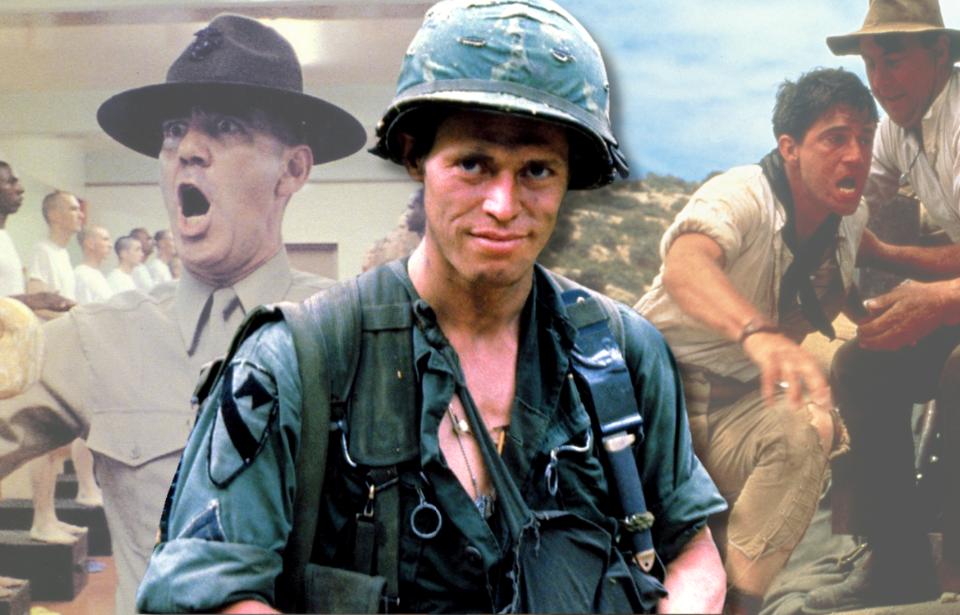While the ’80s wasn’t all about action-buddy movies and teen comedies, there were a lot of war films made throughout decade, as well. It’s easy to overlook them, given just how great a time it was for cinema, but the following are some stone-cold classics that rank alongside the greatest in the war genre.
Gallipoli (1981)
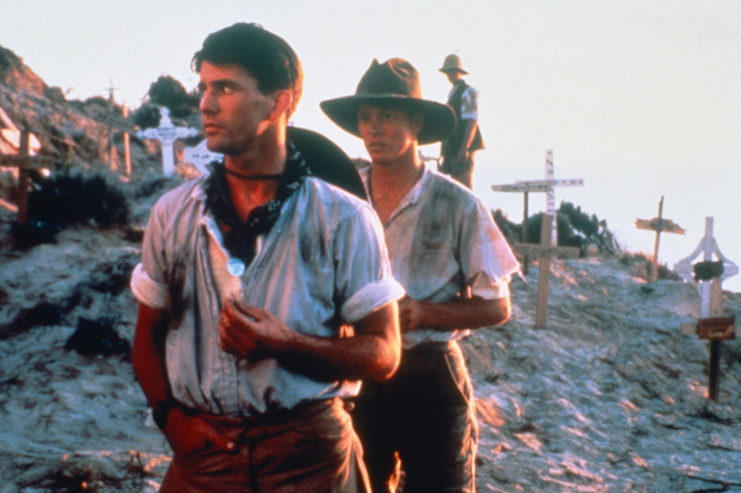
1981’s Gallipoli proved to be more than just an early starring role for Mel Gibson – it was also among the best war movies of the ’80s! An atmospheric and harrowing portrait of young Australian men shattered by conflict, the title comes from the Gallipoli peninsula in Turkey – then the Ottoman Empire – where a brutal campaign was fought during the First World War.
While the film isn’t regarded as being terribly accurate, under the direction of Peter Weir it became a standout depiction of how combat alters a person. Talking to Literature/Film Quarterly, Weir revealed that, at first, “we were not getting at what this thing was, the burning center that had made Gallipoli a legend […] so we put the legend to one side and simply made up a story about two young men, really got to know them, where they came from, what happened to them along the way.”
Alongside Gibson’s Franke Dunne starred Mark Lee, who portrayed Archy Hamilton.
Empire Of The Sun (1987)
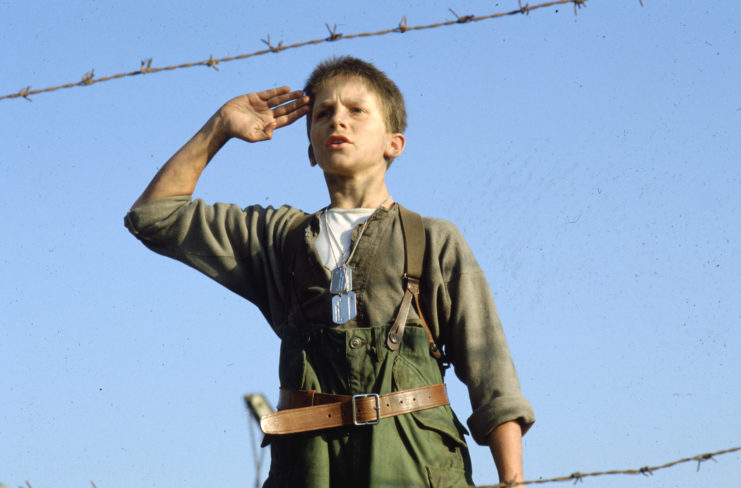
Steven Spielberg seemed to own the ’80s, with E.T. the Extra-Terrestrial (1982) and Raiders of the Lost Ark (1981) being just a couple of his box office hits. However, he stumbled a little with 1987’s Empire Of The Sun, a World War II epic starring a young Christian Bale.
Bale plays Jamie “Jim” Graham, who is separated from his family in Shanghai and finds himself in a remorseless internment camp run by the Japanese. Based on the book by J.G. Ballard, this ’80s war movie wasn’t an immediate success; US audiences didn’t take much to it, although it performed better in other parts of the world.
“Spielberg is a good storyteller with a good tale to tell, but it never really adds up to anything,” wrote famed film critic Roger Ebert. “What statement does Spielberg want to make about Jim, if any? […] The movie falls into the trap of so many war stories, and turns horror into nostalgia.”
Despite its lukewarm reception, Empire Of The Sun has a 90 percent audience score on Rotten Tomatoes and 76 percent rating from critics, with the site describing it as “an underrated gem.”
Glory (1989)
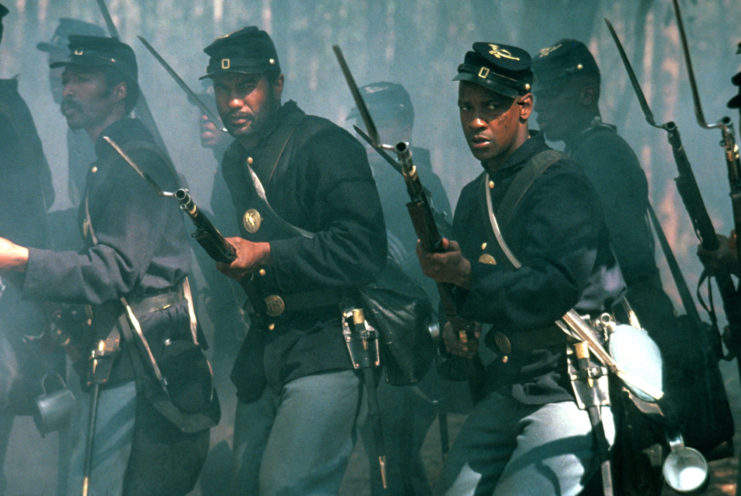
As the ’80s drew to a close, Edward Zwick’s American Civil War film Glory arrived in cinemas. This 1989 Academy Award winner had an incredible cast, featuring Denzel Washington, Morgan Freeman and Matthew Broderick. It presented the story of the 54th Massachusetts Infantry Regiment, the second African-American regiment of the Union Army.
Washington won the Academy Award for Best Actor in a Supporting Role for his portrayal of Pvt. Silas Trip, while Freddie Francis bagged Best Cinematography. “It was a spontaneous improvisation that Washington has long admitted was unplanned – a natural reaction to living the moment where his character, Pvt. Trip, is being whipped for an unfair charge of desertion – yet it’s perfectly apiece with the natural agony and virtue inherent in that Civil War movie,” wrote Den of Geek.
Full Metal Jacket (1987)
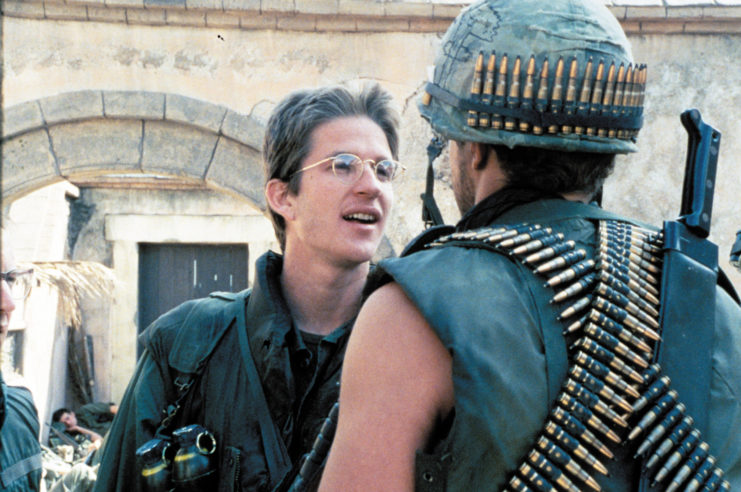
By the ’80s, a Stanley Kubrick movie was a rare event. In 1987, he released Full Metal Jacket, a Vietnam War drama and his first film since The Shining (1980). It was based on a novel, The Short-Timers by Gustav Hasford, and follows a group of young men as they enlist in the US Army, before enduring the rigors of conflict.
This classic ’80s war movie was shot in Britain, far removed from Southeast Asia. Turning a London gasworks into the devastated Vietnamese city of Huế was just one of the director’s feats of illusion. Matthew Modine starred as Pvt. J.T. “Joker” Davis, who didn’t have much to laugh about. Legendary Gunnery Sgt. Hartman, portrayed by R. Lee Ermey, terrorized him and the other recruits with a memorable stream of elaborate insults.
“Stanley was really making a film about the effects of war – what happens when young men who’ve been taught their whole lives to respect life then become killers,” Modine told The Guardian. “It’s testament to his direction that you have a character that might normally be considered the bad guy – the drill instructor, played by Lee Ermey – and yet nobody cheers, nobody’s happy, when the drill instructor gets shot and killed, because you know that guy was trying to teach those guys to work together.”
Das Boot (1981)
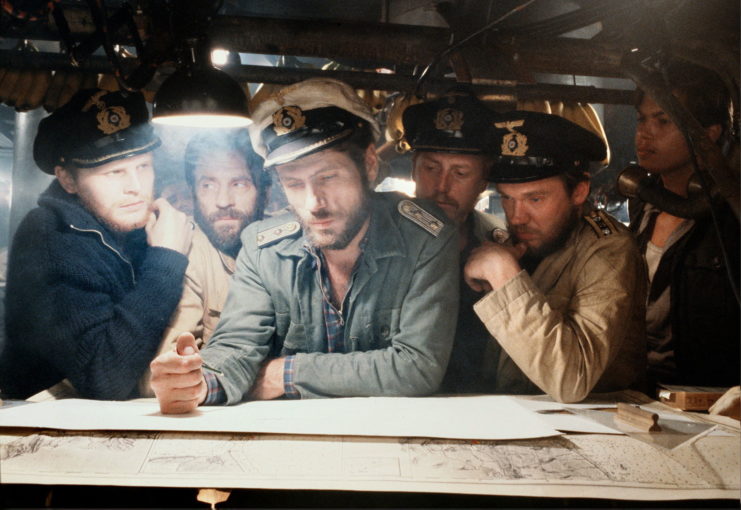
Das Boot (1981) is a German war movie classic that takes audiences to new depths! Set aboard a U-boat during the Second World War, it put director Wolfgang Petersen and star Jürgen Prochnow on the map. The former played the captain of the title craft, U-96.
The script was based on the book by Lothar-Günther Buchheim. Speaking to Mandatory, Petersen offered his thoughts on the submariners’ situation, saying, “At the time there was so much propaganda going on that these kids when they went out, they were like superstars. If they survived, when they came back, they were celebrated like pop stars. Also the whole b******t with everything for Germany, ‘give your life for Germany,’ they very strongly developed it.”
The director aimed to show the mens’ patriotism, but also the tough realities of life in arguably the ultimate pressure cooker environment. The result is seen as a gold standard for submarine-based films. James Cameron’s claustrophobic sci-fi sequel Aliens (1986) is believed to have been influenced by the movie.
Platoon (1986)
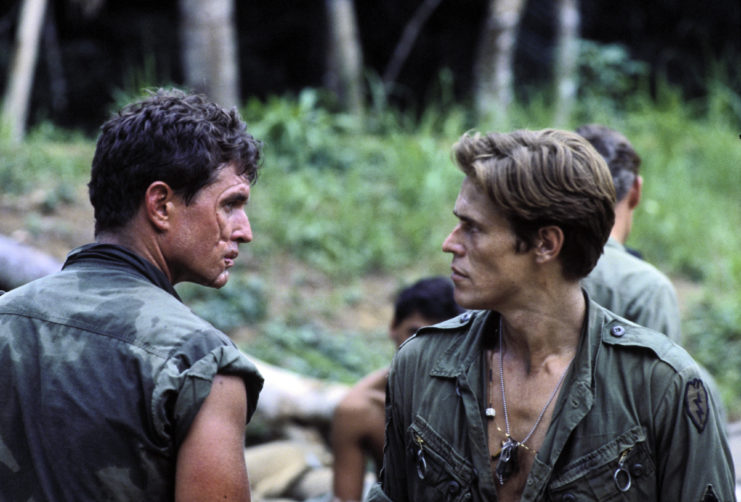
If one director captured the essence of the war in Vietnam, it’s Oliver Stone. His 1986 drama Platoon drew upon his time as an infantryman in the midst of the controversial conflict. A key, if unwitting, force behind the production was John Wayne. His famously one-sided film, The Green Berets (1968), led Stone to create a more accurate version of life on the ground.
Charlie Sheen stars as Pvt. Chris Taylor, together with actors who came to define US cinema – Forest Whitaker and Willem Defoe. Originally, the story was called Break, and Stone wanted The Doors frontman Jim Morrison to play the main character.
More from us: ‘Saving Private Ryan’ Facts Every Movie Fan Should Know
The experience was transformative for the director. Speaking at the BFI, Stone said of his time in Vietnam, “I’m very lucky that I got to make three war movies about it (the others being Born On The Fourth Of July and Heaven & Earth) – I think that helped enormously.
“I think there are a lot of successful Vietnam veterans in civilian life who are doing very well on the surface but are very bottled up inside […] Vietnam was a charnel house […] But that’s the nature of war. Platoon is fundamental, it’s almost biblical.”
